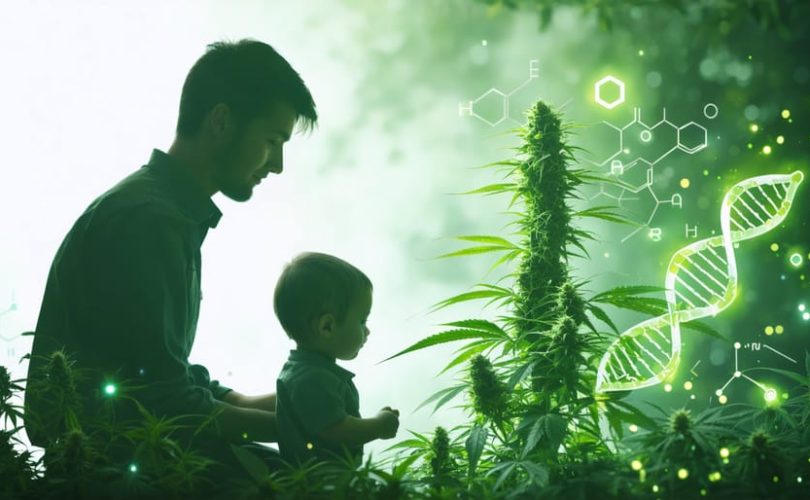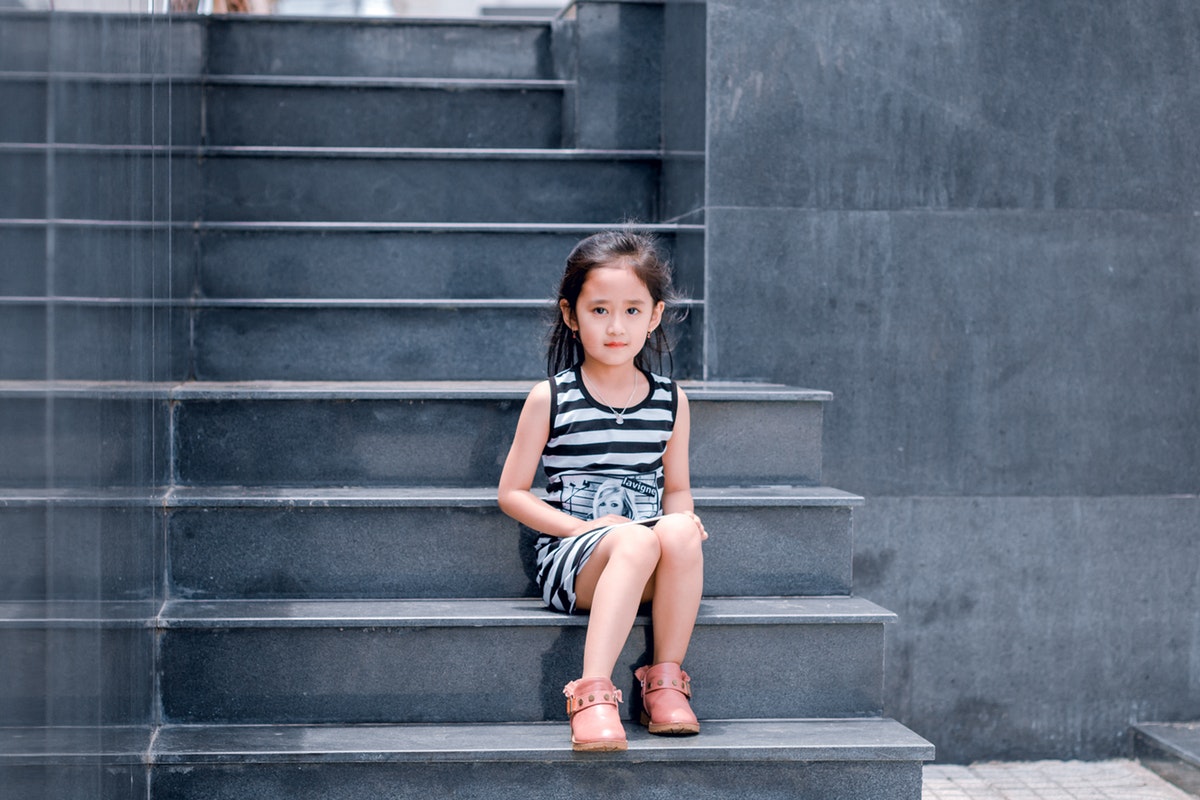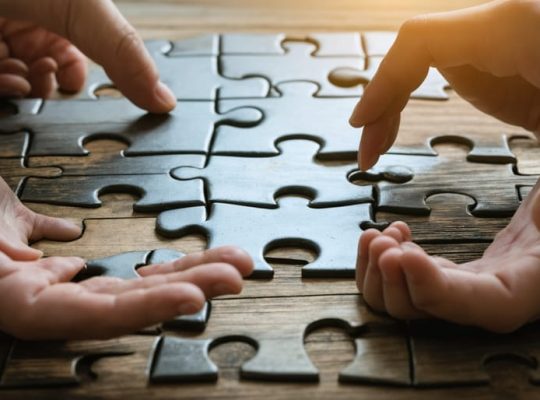As parents increasingly explore natural alternatives for supporting their children’s mental health, CBD Canada and similar resources have sparked important discussions about CBD oil’s potential role in pediatric care. The intersection of CBD oil and children’s mental health represents one of today’s most complex and carefully considered therapeutic frontiers.
Recent clinical studies suggest promising applications for CBD in managing certain childhood conditions, including anxiety, attention difficulties, and autism spectrum disorders. However, this emerging field demands careful consideration of safety, dosing, and legal parameters. While some families report significant improvements in their children’s well-being with CBD oil, medical professionals emphasize the importance of evidence-based decision-making and professional guidance.
This comprehensive exploration delves into current research, expert insights, and practical considerations for parents contemplating CBD oil as part of their child’s mental health support system. Understanding both the potential benefits and limitations of CBD oil empowers families to make informed decisions while prioritizing their children’s safety and well-being in consultation with healthcare providers.
Understanding CBD Oil: Basic Facts for Parents
What is CBD Oil?
CBD oil, or cannabidiol oil, is a natural compound extracted from the hemp plant. Unlike its cousin THC (tetrahydrocannabinol), CBD doesn’t cause a “high” or any intoxicating effects. Think of it as selecting just one beneficial component from the plant while leaving behind the parts that alter consciousness.
The extraction process typically involves using safe solvents or CO2 to separate CBD from the plant material, resulting in a concentrated oil. This oil can then be mixed with carrier oils like coconut or hemp seed oil to create the final product. The resulting CBD oil comes in various concentrations and forms, from tinctures to capsules.
What makes CBD interesting to researchers and healthcare professionals is its potential interaction with our body’s endocannabinoid system – a complex network that helps regulate various functions including mood, sleep, and stress response. This natural connection explains why scientists are exploring CBD’s potential therapeutic applications, particularly in mental health.
It’s important to note that CBD oil is different from hemp seed oil, which doesn’t contain significant amounts of cannabidiol. When considering CBD for children, always look for products specifically tested for purity and quality.
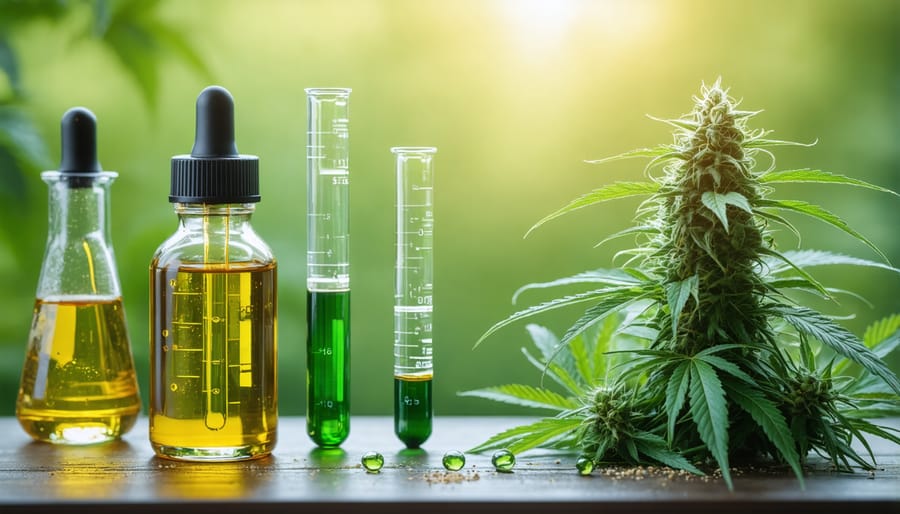
CBD vs. THC: Important Differences
One of the most common concerns parents have about CBD oil is its relationship to marijuana. Let me clarify: CBD and THC are two distinct compounds found in cannabis plants, but they work very differently. CBD (cannabidiol) is non-intoxicating, meaning it won’t make your child feel “high” or alter their mental state. It’s typically extracted from hemp plants and contains minimal to no THC.
THC (tetrahydrocannabinol), on the other hand, is the psychoactive compound responsible for marijuana’s intoxicating effects. When we talk about CBD oil for children’s mental health, we’re specifically referring to products that contain pure CBD or broad-spectrum CBD with no THC.
Dr. Sarah Thompson, a pediatric neurologist, explains: “The CBD products used in medical settings are carefully regulated and tested to ensure they contain no THC. This makes them fundamentally different from recreational marijuana products.”
Legal CBD products for children must contain less than 0.3% THC and should always be purchased from reputable manufacturers who provide third-party testing results. This ensures both safety and legality while maintaining therapeutic potential.
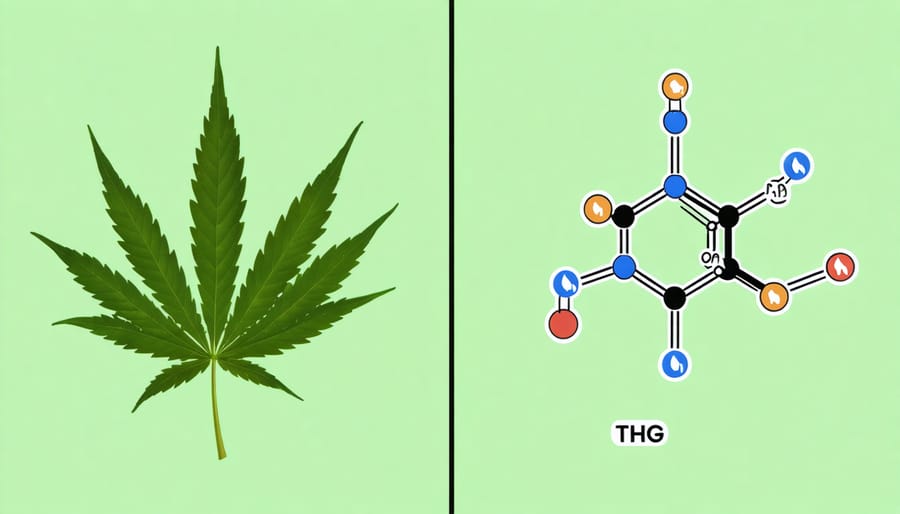
Current Research on CBD and Children’s Mental Health
Anxiety and Stress
Recent research has shown promising results regarding CBD’s potential role in managing anxiety and depression in children, particularly those who haven’t responded well to traditional treatments. Studies indicate that CBD may help reduce anxiety symptoms by interacting with serotonin receptors in the brain, similar to how conventional anti-anxiety medications work.
Dr. Sarah Thompson, a pediatric psychiatrist, shares her observations: “Some of my young patients have experienced noticeable improvements in their anxiety levels when using CBD as part of a comprehensive treatment plan. However, it’s crucial to approach this option carefully and under proper medical supervision.”
Parents have reported seeing positive changes in their children’s stress responses, including better sleep patterns, reduced panic attacks, and improved social interactions. Eight-year-old Jake’s mother notes, “After consulting with our doctor and starting a monitored CBD regimen, we’ve seen a remarkable difference in Jake’s ability to handle stressful situations at school.”
While these findings are encouraging, it’s important to remember that research is still ongoing, and CBD shouldn’t be considered a standalone solution. The best results typically come from combining CBD with other therapeutic approaches, such as counseling, lifestyle modifications, and proper stress management techniques.
ADHD and Focus
Recent research suggests that CBD may help support focus and attention in children experiencing behavior challenges. While studies are still ongoing, preliminary findings indicate that CBD might influence the endocannabinoid system, which plays a role in attention regulation and cognitive function.
Dr. Sarah Martinez, a pediatric neurologist, explains: “We’re seeing promising results in how CBD may help some children maintain better focus, though it’s important to note that responses can vary significantly between individuals.”
Parents report mixed experiences, with some noting meaningful improvements in their children’s ability to concentrate on tasks and follow instructions. However, it’s essential to understand that CBD is not a replacement for established ADHD treatments or behavioral interventions.
Before considering CBD as a support option, families should work closely with healthcare providers to develop a comprehensive approach that may include traditional treatments, behavioral therapy, and lifestyle modifications. This ensures any potential use of CBD is part of a well-monitored, holistic treatment plan.
Other Mental Health Conditions
Research has shown promising results for CBD oil in addressing various other mental health conditions in children. Studies indicate potential benefits for sleep disorders, with some parents reporting improved sleep patterns in children who previously struggled with insomnia. Additionally, early research suggests CBD may help manage symptoms of obsessive-compulsive disorder (OCD) and mood disorders, though more extensive studies are needed.
For children dealing with trauma-related conditions, some healthcare providers have observed positive responses when CBD is used as part of a comprehensive treatment approach. Dr. Sarah Martinez, a pediatric psychiatrist, shares, “While we’re still learning about CBD’s full potential, we’ve seen encouraging results in children with complex mental health needs, particularly when traditional treatments haven’t provided adequate relief.”
It’s important to note that research in these areas is still emerging, and results can vary significantly from child to child. Parents considering CBD for other mental health conditions should work closely with healthcare providers to evaluate whether it might be appropriate for their child’s specific situation, taking into account their complete medical history and current treatment plan.
Safety Considerations and Legal Status
Potential Risks and Side Effects
While CBD oil shows promise for supporting children’s mental health, it’s crucial to understand the potential risks and side effects. Dr. Sarah Thompson, a pediatric psychiatrist, notes that the most commonly reported side effects in children include drowsiness, changes in appetite, and mild digestive issues like diarrhea.
Some children may experience fatigue, irritability, or changes in sleep patterns when first starting CBD oil. There’s also concern about potential interactions with other medications, particularly those metabolized by the liver. Parents should always consult with their child’s healthcare provider before starting CBD oil, especially if their child is taking other medications.
Quality and purity of CBD products remain significant concerns. The FDA doesn’t regulate most CBD products, which means there’s risk of contamination or inaccurate labeling. Some products may contain more THC than stated, which could affect your child’s developing brain.
Long-term effects of CBD use in children are still being studied. While current research hasn’t shown major safety concerns, we need more extensive studies to fully understand the impact on growing bodies and developing brains.
Remember that every child responds differently to CBD. What works safely for one child might not be suitable for another. Always start with the lowest possible dose and monitor your child closely for any adverse reactions.
Legal Considerations
The legal landscape surrounding CBD oil for children varies significantly across regions, making it essential for parents to understand their local safety and legal considerations. In the United States, CBD derived from hemp (containing less than 0.3% THC) became federally legal under the 2018 Farm Bill. However, state regulations can differ substantially, and some states maintain stricter controls over CBD products, especially when it comes to pediatric use.
It’s crucial to note that the FDA has only approved one CBD-based medication, Epidiolex, for treating specific forms of childhood epilepsy. All other CBD products remain unregulated for medical use in children. This means that over-the-counter CBD products aren’t officially approved for treating children’s mental health conditions.
Before considering CBD oil for your child, consult with a licensed healthcare provider who can guide you through the legal requirements in your area. Many medical professionals now work within established frameworks to help families navigate these waters safely and legally. Keep in mind that schools and childcare facilities may have their own policies regarding CBD products, so it’s important to discuss these considerations with relevant administrators if treatment during school hours is necessary.

Speaking with Healthcare Providers
Questions to Ask Your Child’s Doctor
When considering CBD oil for your child’s mental health, it’s crucial to have an open and thorough discussion with their healthcare provider. Here are essential questions to bring to your next appointment:
About Safety and Appropriateness:
– Is CBD oil appropriate for my child’s specific condition?
– What are the potential risks and side effects we should watch for?
– Could CBD interact with any medications my child is currently taking?
– How might CBD affect my child’s developing brain?
About Treatment Details:
– What dosage would you recommend for my child’s age and weight?
– What form of CBD would be most appropriate (oil, gummies, etc.)?
– How long should we try this treatment before evaluating its effectiveness?
– What signs of improvement should we look for?
About Monitoring and Follow-up:
– How often should we schedule follow-up appointments?
– What symptoms or reactions should prompt us to contact you immediately?
– How will we track and measure progress?
– What testing or monitoring might be needed?
About Legal and Practical Considerations:
– Are there any legal issues we should be aware of?
– How should we handle school administration and other caregivers?
– What documentation do we need for school or other activities?
– Where can we find reliable, quality products?
Remember to take notes during your discussion and don’t hesitate to ask for clarification on any points you don’t fully understand.
Alternative Treatment Options
When considering your child’s mental health journey, it’s important to explore various treatment options alongside or instead of CBD oil. Traditional psychotherapy, including cognitive behavioral therapy (CBT) and play therapy, remains a cornerstone of child mental health treatment. These approaches help children develop coping skills and emotional regulation techniques in a safe, supportive environment.
Many families find success with mindfulness and meditation practices, which can help reduce anxiety and improve focus. Regular exercise, proper nutrition, and establishing healthy sleep routines also play crucial roles in supporting children’s mental well-being.
For some children, traditional medications prescribed by psychiatrists may be appropriate. These might include antidepressants, anti-anxiety medications, or other psychiatric medicines that have been thoroughly studied in pediatric populations.
Alternative approaches like art therapy, music therapy, and animal-assisted therapy can provide creative outlets for emotional expression and healing. Some families also report positive results with occupational therapy, particularly for children with sensory processing challenges.
Dr. Sarah Martinez, a pediatric psychiatrist, emphasizes, “The most effective treatment plans are often those that combine multiple approaches tailored to each child’s specific needs. What works for one child may not work for another, and that’s perfectly okay.”
As we’ve explored throughout this article, the relationship between CBD oil and children’s mental health is a complex and evolving topic that requires careful consideration. While promising research suggests potential benefits for certain conditions like anxiety and attention difficulties, it’s crucial to remember that every child is unique, and what works for one may not work for another.
The decision to explore CBD oil as a treatment option should never be made lightly or without professional guidance. Always consult with your child’s healthcare provider first, as they can evaluate your child’s specific needs, medical history, and potential interactions with other medications. Remember that quality, safety, and proper dosing are paramount when considering any supplement for your child.
Stay informed about the latest research and legal developments in your area regarding CBD use in children. Keep open lines of communication with your child’s healthcare team, and don’t hesitate to ask questions or voice concerns. Consider CBD oil as just one potential tool in a comprehensive approach to supporting your child’s mental health, alongside traditional therapies, lifestyle modifications, and emotional support.
By making informed decisions based on reliable information and professional guidance, you can better navigate the options available for supporting your child’s mental well-being. Your child’s health and safety should always be the primary focus in any treatment decision.

